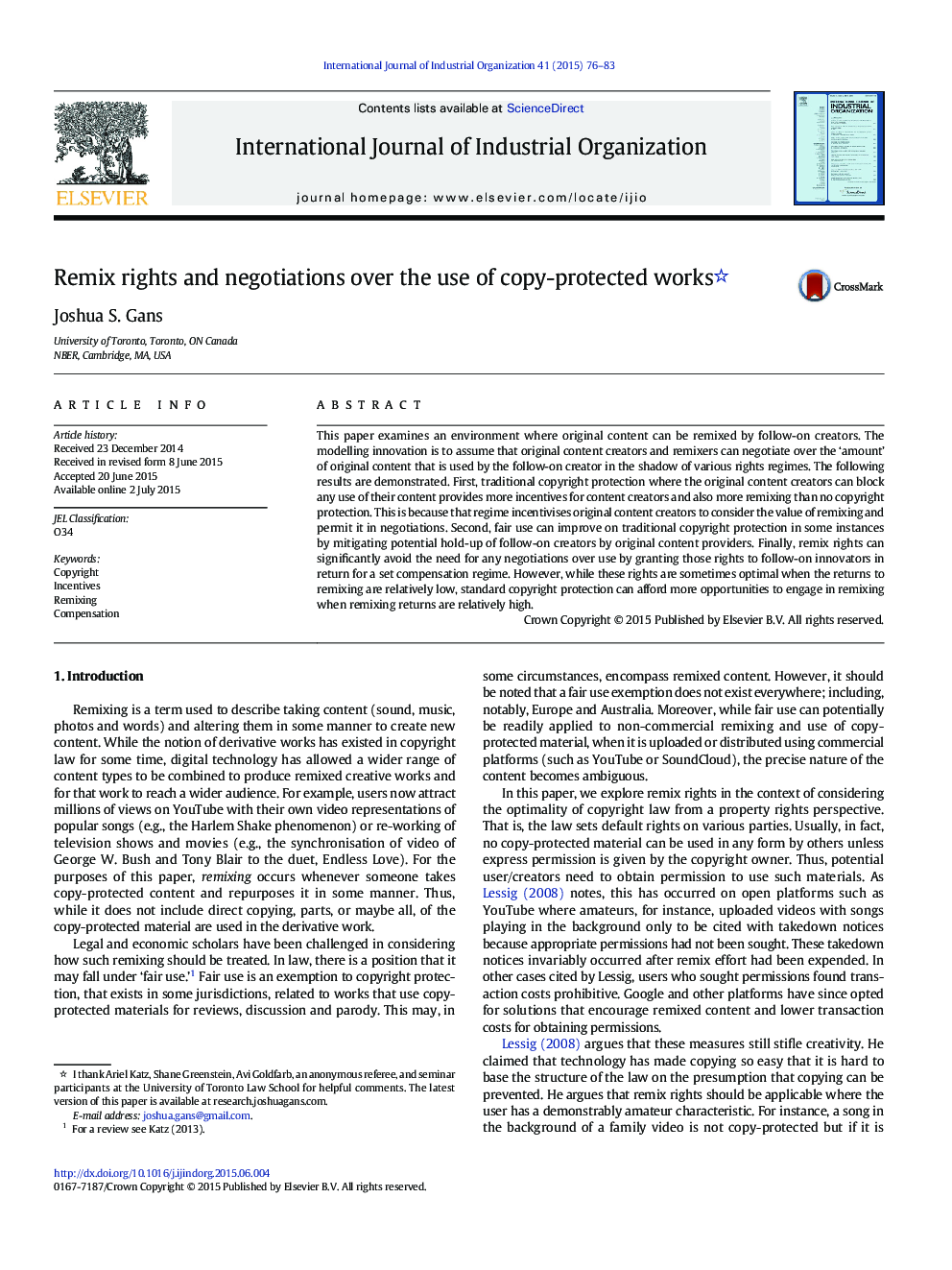| Article ID | Journal | Published Year | Pages | File Type |
|---|---|---|---|---|
| 5077884 | International Journal of Industrial Organization | 2015 | 8 Pages |
â¢Remixing is a common form of changing copy-protected content.â¢This paper is the first to consider remixing as a negotiated outcome contingent on the copy-protection regime.â¢Copy-protection is supported by an additional rationale in that it can actually facilitate remixing and not harm it as popular treatments suggest.â¢Other regime rights such as fair use and remix rights are analyzed.
This paper examines an environment where original content can be remixed by follow-on creators. The modelling innovation is to assume that original content creators and remixers can negotiate over the 'amount' of original content that is used by the follow-on creator in the shadow of various rights regimes. The following results are demonstrated. First, traditional copyright protection where the original content creators can block any use of their content provides more incentives for content creators and also more remixing than no copyright protection. This is because that regime incentivises original content creators to consider the value of remixing and permit it in negotiations. Second, fair use can improve on traditional copyright protection in some instances by mitigating potential hold-up of follow-on creators by original content providers. Finally, remix rights can significantly avoid the need for any negotiations over use by granting those rights to follow-on innovators in return for a set compensation regime. However, while these rights are sometimes optimal when the returns to remixing are relatively low, standard copyright protection can afford more opportunities to engage in remixing when remixing returns are relatively high.
